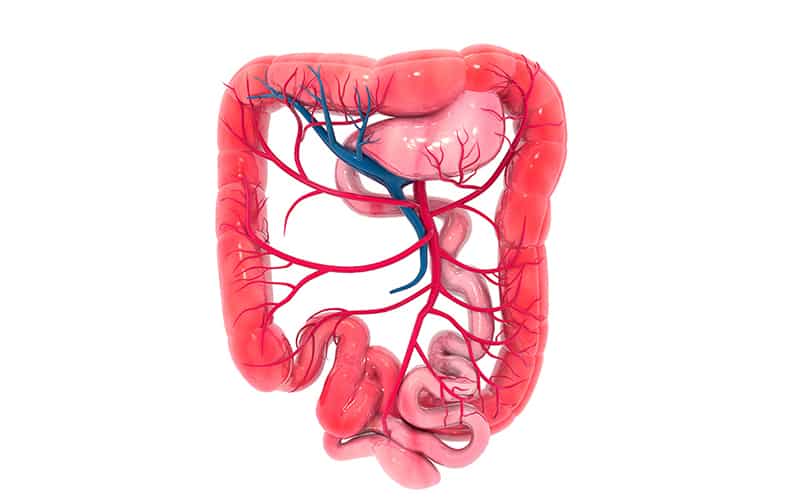Bowel or Colorectal cancer (CRC) is the second most prevalent cancer that affects men and women with 1 in 14 men (7%) and 1 in 19 women (5%) being diagnosed with it in their lifetime. Around 268,000 people living in the UK today have been diagnosed with bowel cancer with over 90% occurring in people over the age of 50.
CRC occurs in the colon (the large intestine) or in the rectum with a roughly 80:20 split. The vast majority of these cancers develop from small polyps that are found on the bowel wall. The frequency of these polyps increases as we get older, occurring in approximately 10% of people over the age of 50. Most will never turn into cancer but over time, a minority do.
The good news is that these polyps tend to be slow growing on their path to becoming malignant (10 – 15 years) so if caught early, they can be removed long before they become a problem. But once they are malignant, the prognosis is poor and as with most cancers they can metastasise, spreading through the wall of the bowel into adjacent tissues or lymph nodes or via the blood stream to other organs, most often the liver.
Detected early, using screening techniques such as our non-invasive CT Virtual Colonoscopy, the prognosis is good. Left to the point where the polyps have become malignant and the resultant cancers causing symptoms, the prognosis is often poor with low chances of cure and palliative care being a likely course of action.
